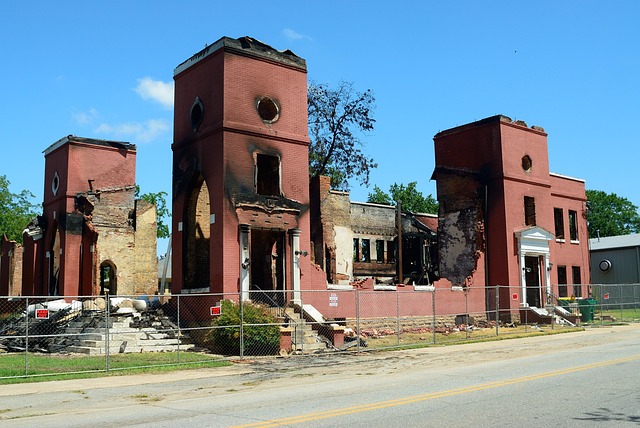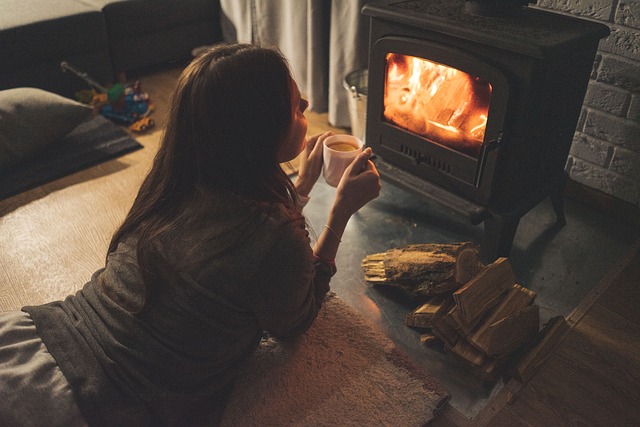Selling a home with fire damage in California involves a complex process due to state regulations and valuation methods. Insurance adjusters provide initial estimates, but professional appraisers are crucial for accurate assessments, considering both visible and hidden damage. Homeowners must navigate legalities, consult experts, document losses, and prepare their property for appraisal. Two primary valuation methods – replacement cost and income approach – are used, emphasizing transparency and thorough documentation for successful sales.
After a devastating fire, homeowners in California often wonder about their property’s value. This guide navigates post-fire property valuation, exploring how fire damage impacts home values and providing practical strategies for selling. We delve into legal considerations, insurance claims, appraisal preparation, assessment methods, and more, offering insights crucial for folks facing this challenging situation in the Golden State.
Learn how to maximize your recovery and understand the process of selling a house with fire damage California.
- Understanding Post-Fire Property Valuation in California
- The Impact of Fire Damage on Home Value
- Legal Considerations and Insurance Claims
- Preparing Your House for Appraisal
- Common Assessment Methods After a Fire
- Strategies for Selling with Fire Damage Disclosed
Understanding Post-Fire Property Valuation in California

In the aftermath of a fire, property owners in California often find themselves navigating complex challenges when it comes to selling their homes. Post-fire property valuation is a critical process that determines the financial outcome for both sellers and buyers. This meticulous evaluation considers the extent of damage caused by the fire, along with the potential costs of repair or reconstruction. It’s not merely about assessing structural integrity but also factoring in the emotional impact on residents and the unique challenges of selling a house with fire damage in California.
California has specific guidelines and regulations regarding post-fire property valuation to ensure fair practices. Insurance adjusters play a significant role in this process, providing initial estimates for repairs. However, professional appraisers are often engaged to offer independent assessments, especially when the damages are substantial or there are disputes. These experts meticulously inspect the property, considering not only the visible damage but also potential hidden issues that may have been exposed by the fire. Understanding these dynamics is crucial for anyone selling a house with fire damage in California, ensuring a transparent and equitable transaction.
The Impact of Fire Damage on Home Value

Fire damage can significantly impact the value of a property, especially in highly competitive real estate markets like California. When a home suffers from fire damage, it’s crucial to understand that not all effects are visible or measurable with the naked eye. Beyond the structural repairs, the psychological impact on potential buyers cannot be understated. A house that has been through a fire may carry invisible scars that could deter prospective purchasers, even after extensive renovations.
The extent of the damage plays a pivotal role in determining the property’s future value. Minor fires might leave behind smoke stains and odours, while severe blazes can destroy entire sections of the home. In California, where the real estate market is both diverse and competitive, selling a house with fire damage requires careful consideration. Appraisers must meticulously assess each case, taking into account not only the cost of repairs but also the potential for residual odours, structural weaknesses, and psychological factors that could influence a buyer’s decision, ultimately affecting the final sale price.
Legal Considerations and Insurance Claims

After a fire, selling a house with fire damage in California involves a complex interplay of legal considerations and insurance claims. Homeowners must navigate the process carefully to ensure they receive fair compensation for their property while adhering to state laws and regulations. The first step is to consult with an experienced real estate agent or attorney who specializes in post-fire property transactions. They can guide homeowners through the legal aspects, including understanding the rights and responsibilities outlined in California’s Fire Code and Insurance Code.
Insurance claims are a critical component of this process. Homeowners should document all losses meticulously by taking photos and keeping records of repairs and replacements. This evidence will be crucial when filing an insurance claim. It’s important to remember that insurance companies may have specific requirements for fire damage claims, including timely notifications and detailed reports. Engaging with insurance providers proactively can help streamline the claim process and ensure homeowners receive compensation for both structural damages and personal belongings affected by the fire.
Preparing Your House for Appraisal

When selling a house with fire damage in California, preparing your property for appraisal is a crucial step. Before the appraiser arrives, ensure the safety of your home by clearing any hazardous materials or debris left behind by the fire. This includes removing charred insulation, damaged drywall, and any other visible signs of smoke or water damage. A clean and secure environment not only facilitates a more accurate assessment but also ensures the safety of the appraiser.
In addition to physical cleanup, present your home in the best possible light. Temporarily fix any structural issues that have arisen due to the fire, such as boarded-up windows or exposed wiring. Remove personal belongings that may obscure potential damage, allowing the appraiser a clear view of the property’s interior and exterior. Remember, the goal is to showcase the true value of your home, despite the recent fire damage, so every effort towards preparation will pay off in the appraisal process.
Common Assessment Methods After a Fire

After a fire, assessing property value in California involves several common methods tailored to the extent of damage. One popular approach is the replacement cost method, which estimates the current cost to rebuild or replace the structure based on comparable properties and construction costs in the area. This method is particularly useful for determining the value of the physical assets remaining after the fire.
Another widely used technique is the income approach, focusing on the potential rental income a property could generate. For owners selling a house with fire damage in California, this might involve analyzing similar rental properties in the vicinity and adjusting the estimated income based on the property’s condition and market demand. This method is especially relevant for investors or those planning to rebuild and rent the property afterward.
Strategies for Selling with Fire Damage Disclosed

When considering selling a house with fire damage California, it’s crucial to understand that disclosure is key. Open and honest communication about the extent of the damage is essential for navigating this challenging process effectively. Homeowners should thoroughly document every affected area, including structural damage, water damage from firefighting efforts, and any smoke or soot residue. This meticulous record will not only assist in obtaining an accurate post-fire property valuation but also build trust with potential buyers.
Strategic marketing becomes paramount in the selling a house with fire damage California scenario. Highlighting the positive aspects of the property while acknowledging the challenges is vital. Professional photography and detailed descriptions can showcase the home’s potential, downplaying the damage and emphasizing its curable nature. Engaging with experienced real estate agents who specialize in such cases can also prove invaluable, ensuring a smoother transition through the sales process.
When selling a house with fire damage in California, understanding the post-fire property valuation process is crucial. This article has guided you through key aspects, from recognizing the impact of fire damage on home value to navigating legal considerations and insurance claims. By preparing your house appropriately for appraisal and being aware of common assessment methods, you can effectively navigate the challenges of selling with fire damage disclosed. These strategies ensure a smoother transition, helping you maximize your sale while prioritizing fair and accurate property valuation.





